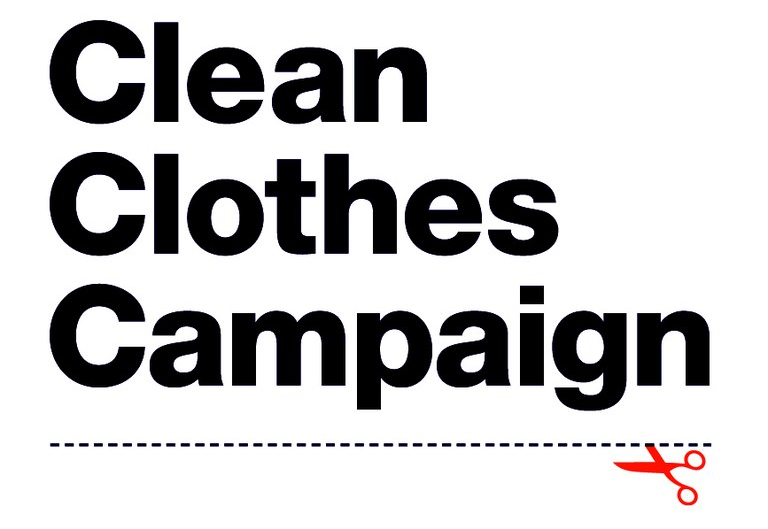Search results
3217 results
Sort by:
RS2293_37493216502_3c189317a7_o(1).jpg
RS2293_37493216502_3c189317a7_o(1).jpg
RS2682_BIGUF_2.jpg
Why does CCC criticise commercial audits?
The majority of brands and retailers now rely on “social audits”: inspections of factories by external firms.
RS2293_37493216502_3c189317a7_o(1).jpg
RS2293_37493216502_3c189317a7_o(1).jpg
RS2682_BIGUF_2.jpg
The brand I consider buying claims to be sweatshop-free and committed to workers’ rights. Can I trust it?
Brands promises, often presented in “codes of conduct”, vary in content and levels of commitment. They are standards set by the brand itself which cannot be enforced in court.
RS2293_37493216502_3c189317a7_o(1).jpg
RS2293_37493216502_3c189317a7_o(1).jpg
RS2682_BIGUF_2.jpg
Do any brands pay their workers living wages?
Currently, no major fashion brand pays all their workers a living wage; for most items, wages will scarcely exceed 3% of the retail price.
RS2105_Ekala, Katunayake FTZ, Nittambuwa and Hasalaka - FTZ GSEU Sri Lanka18.jpg
RS3339_justice-is-everybodys-business---rana-plaza-commemoration_53674244132_o.jpg
RS970_2013 workwear sweatshop for CZ Transcarpathia_Yevgenia Belorusets, Ukrainesh (5)_scr.jpg
Stand Up for the Right to Freedom of Association and Demonstration
Workers from Chinese factories in Prato, Italy, successfully fought for fair working hours. Shortly after their victory, the Swiss fashion group Richemont, which had been manufacturing luxury leather bags in the region, relocated its production, and the workers lost their jobs. In response, the workers and the SUDD Cobas union took action, attracting the attention of many media outlets. Now, the union is facing an injunction from Montblanc, attempting to prevent SUDD Cobas from taking further action outside Montblanc shops.
Earthquake survivors in Türkiye successfully challenge factory’s refusal to pay severance
Earthquake survivors in Malatya, Türkiye, who were dismissed in the wake of the deadly tragedy that destroyed their homes, successfully challenged their factory to pay them the compensation owed to them by law. While most of the brands sourcing from the factory were happy to leave these vulnerable workers at the mercy of a lengthy and costly legal process, direct intervention by the union, CCC and one of the brands involved eventually secured justice for these workers.
Excessive employer influence is weakening worker safety protections in Bangladesh’s garment industry
In a memorandum to global apparel brands that participate in the garment industry’s most respected workplace safety programme, leading labour rights NGOs have shared new research findings showing that factory owner influence over the programme’s operations in Bangladesh is weakening enforcement and endangering workers.
BLOG - It Is Time for the Next Binding Agreement
After the Rana Plaza collapse, the Accord has that a binding agreement between brands and trade unions has the capacity to tackle a longstanding problem, improve the lives of workers, while being cost-effective for brands. The time has now come for the next binding agreement to address another longstanding problem: wage and severance theft.
Contact
Contact details for the International Office
On International Migrants Day, justifications for migrant worker abuse in Nike’s supply chain put migrant rights under threat
Shortly before today’s International Migrants Day, a new report about a case of wage theft at the Hong Seng Knitting factory in Thailand gives the company’s buyer, Nike, new excuses to ignore the rights of the factory’s mostly Burmese migrant workforce.
Screening guide Adidas Owns the Reality
Prankster activists the Yes Men performed an elaborate hoax to improve conditions for garment workers in the Adidas supply chain. Staging a shocking runway show at Berlin Fashion Week in January 2023, they use humour and mischief to make the world pay attention to labour and environmental abuses that the massive sportswear brand is trying to hide. This 2024 short documentary shows the background story of why the Yes Men partnered with the Pay Your Workers coalition to urge adidas to take action for the workers in its supply chain. This film is not meant for festival audiences only. We want it to reach communities and spark off discussions. The full film is available for community screenings around the world and this screening guide can help your organise this.
Hulu Garment flyer
Action flyer for the Hulu Garment case.
Brands: What companies (should) do
The CCC believes that brands should be responsible for the working conditions in their factories and thus must ensure that working conditions in their supply chains are decent and resolve problems when they arise. Brands must respect internationally recognised norms as established by the ILO and the Universal Declaration of Human Rights.
Frequently Asked Questions (FAQ) about the Bangladesh Safety Accord
A collection of FAQs about the Accord of Fire and Building Safety in Bangladesh
